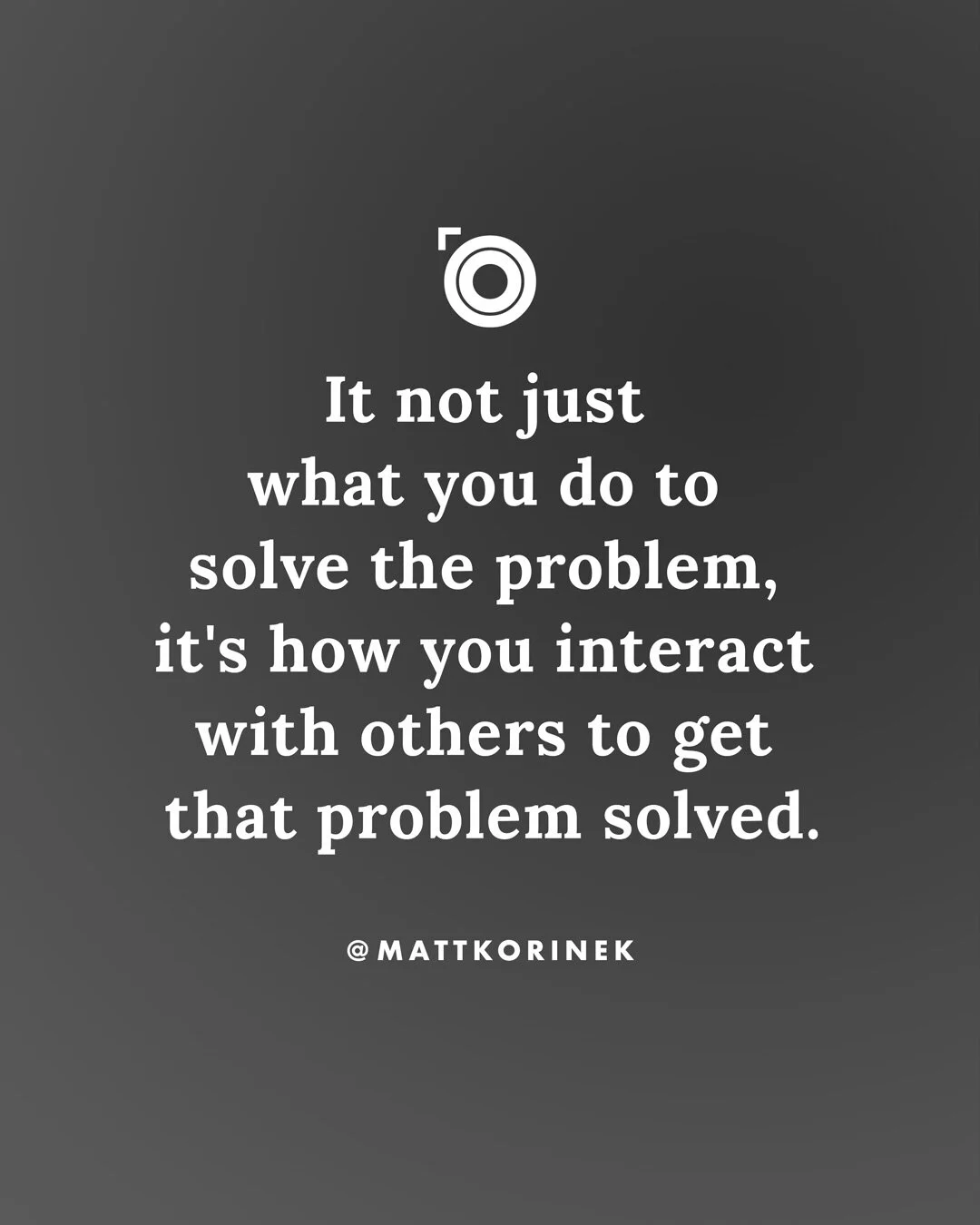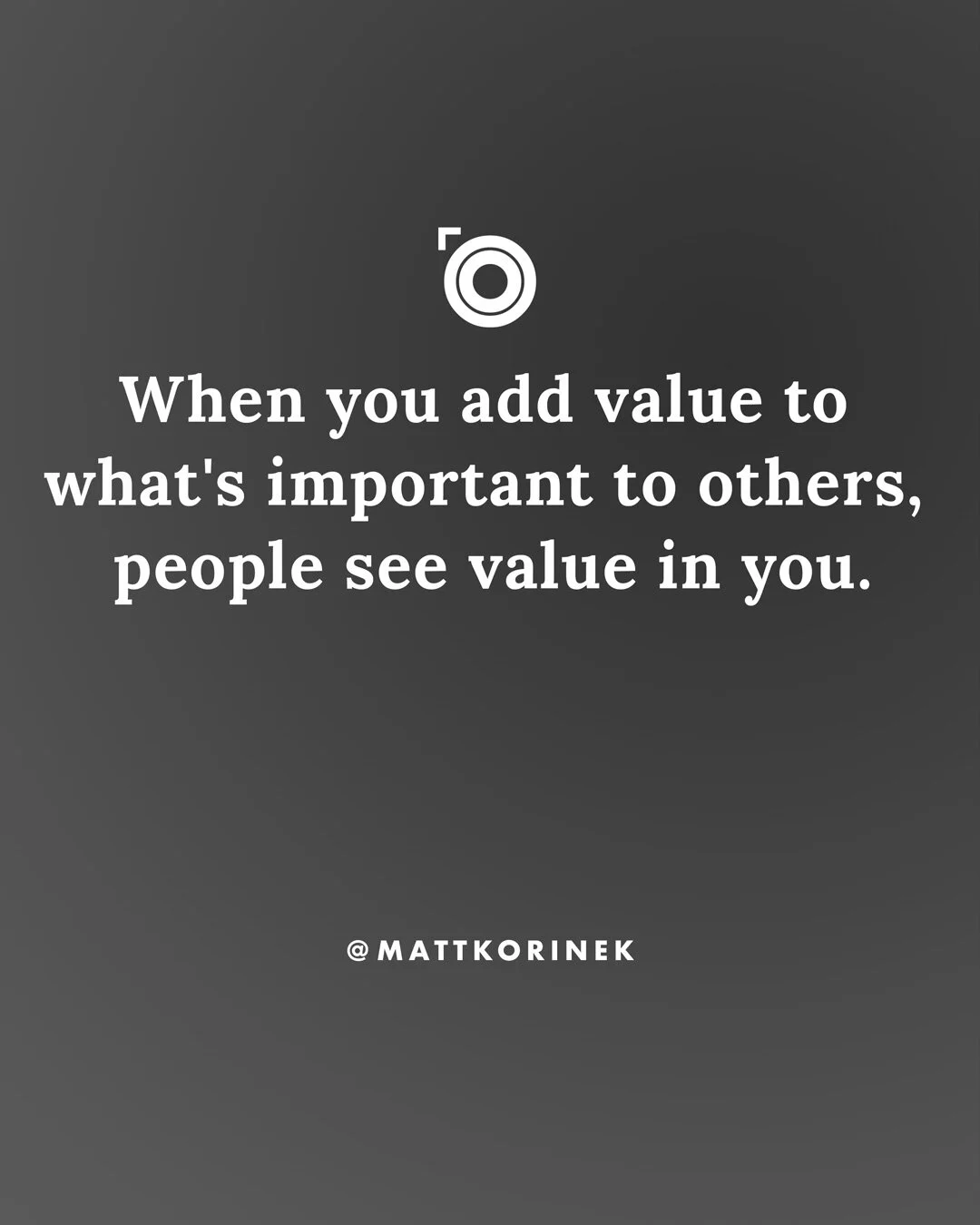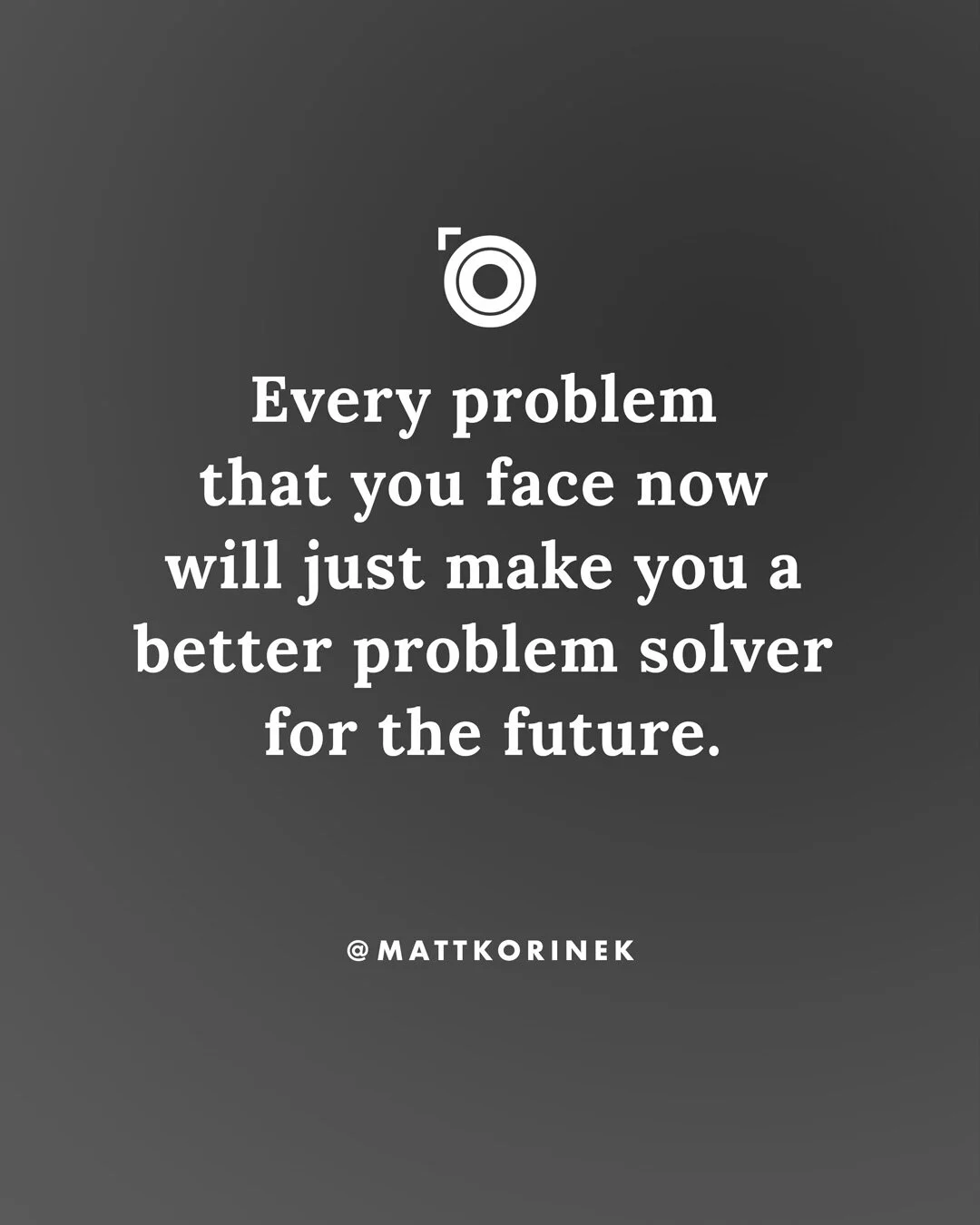Episode 05 - Problem Solve to Become a Pro Photographer
Audio:
Shownotes:
Actions from this episode:
Plan a shoot that introduces some creative problems to solve and puts you out of your comfort zone.
Episode Cards:
DOWNLOAD, PIN & SHARE
Episode Transcript:
Your value as a photographer is often directly related to how well you can solve creative problems.
That's one of the things that came out of my last episode: a coaching session with Matthew Henry. Now I think this idea of photographers as problem solvers is so important to anyone trying to become a professional that I want to spend today's episode talking about that.
Hey, my name is Matt Korinek, and this is the Photo Proventure Vlogcast.
Let's get into it.
[SONIC BRANDING AND OPENING MUSIC]
So what do I mean by problem solving? Well, problem solving is just dealing with anything on set that gets in the way of you creating a great photo.
And so what could those problems look like? Well they could be things like lighting. You know, maybe there isn't enough light, maybe the type of light doesn't go along with the concept or the season that you're shooting. Perhaps the quality of light isn't as nice as you want it to be for the subject you're shooting.
So how do you solve that problem? Do you change the direction you're shooting? Do you modify the existing light? Do you turn off the lights that exist, if you can and replace them with your own lights? Are you using a reflector to fill in some of the shadows? Do you choose a different day?
There's lots of ways that you can try to solve that lighting problem. But it's not just lighting that you may have problems with.
It could be the outfitting or the props or the scene or the things that you have to work with. It could be actually the interpersonal relations on set. Maybe you don't see eye to eye with the art director, or maybe you haven't yet fully connected with your talent. There's all these little things that come up during a shoot that potentially can get in your way.
And so problems like these crop up all the time. And it's how you deal with them that allows you to still get great shots, even when things are working against you.
So why is problem solving so important as a professional? Because in all likelihood, not everything is going to go your way on set.
Now as an amateur, you have some options when you don't take a great photo, you just never have to show someone. Or if you bring the camera up to your eye and you're not liking what you're seeing, you just don't take a photo.
But as a professional, you have to deliver a result and people on set want to see your photos as you're taking them. And often you don't have a ton of choice in what's happening on the day.
Sure, you can help pick the location. You can decide what it is that you're going to bring on set in terms of gear, but there's so much that's happening on the day of the shoot, that you just don't have control over. So you need to learn how to deal with that.
I remember when I first started, I was often shooting natural light and getting stuck in situations where the natural light wasn't so great. Either the quality wasn't good or there just wasn't enough of it.
And so one of the things I would do is let people know who I was shooting with is what I needed. So I needed large windows that let in light. And this worked for the most part because most people understood what I was talking about when I talked about large windows. But there was one case where the location told me there was windows and there were, but what they didn't tell me was that those windows faced inside.
So there was no natural light in the space at all. And I had come prepared thinking that I was going to be shooting natural light. And in that situation, I was totally stuck because, because all I had was a, like a little speed light. I didn't even have a way of triggering it. I don't think. And I definitely didn't have a stand to put it on. So it had to sit on the floor.
So the only solution I had was to bounce that speed light off the wall to try to create some level of soft, directional light. And I'll tell you the images weren't great, but I learned a lot. And I learned what it was that I would need next time. If I was to face a similar situation. How would I approach it next time because of the problems that I saw on set.
So the advice I have for you is to put yourself into uncomfortable situations. Find ways of creating problems for yourself that you need to solve. Because each time you solve a creative problem on your own, you're going to be more prepared for when that same problem or something similar comes up on set.
It not just what you do to solve the problem, it's how you interact with others to get that problem solved.
So how well do you communicate what the problem is and how you're going to fix it? Do you stay positive even in the face of issues? How do you enroll the other people on set to help you solve what you're seeing?
Maybe an art director is going to have to hold a reflector because you don't have an assistant. Maybe you're going to have to change locations because the composition just isn't working.
My suggestion is that when you do see a problem, come out: call it out and then offer potential solutions. Because just calling out a problem without offering a solution, puts all the responsibility onto others on set.
And really, at the end of the day, you're the photographer. You're the one taking the photos. It's your responsibility to get great ones.
And beyond solving problems on set the other thing you can think about is how photographers are actually business problem solvers.
Now, oftentimes it's the business deciding what is their problem. And the problem might be that they have a new product or service that they need to be able to show their customers either what it's all about or the story behind it or whatever that may be.
And so they seek out a photographer who can help them tell that story. And most photographers, just sit back and wait for someone to see that they have that problem and then they try to address it with their services.
But what if you thought of yourself as a business problem, solver, someone who works with businesses to solve the problems they have, because maybe there are opportunities where imagery is going to make a difference for someone's business that they just haven't considered yet.
But you won't know that, unless you're aware of what problems they are facing as a business. So are they facing problems of lead generation? Is it that they don't have enough followers or that their story isn't resonating with the consumers they want?
The more you can think of yourself as a problem solver in life, the more value you can add to the things that are important to others. And when you add value to what's important to others, people see value in you.
So if you want to grow a photography business into something that's truly valuable, get out there and offer value.
And don't just offer value based on what you think is best for you. Get into a relationship and find out what it is that they're facing.
And that doesn't mean you have to listen to the exact problems they have. Try to listen for the even deeper ones. The ones that they're not noticing, because if I just ask someone, what are your business problems? They will mention all the ones that they're currently trying to solve, but perhaps there's an underlying one. Something that if you unlocked it would actually help all those other things that they're dealing with.
And so, can you synthesize what you're hearing into something that will truly help another business get to the next level.
[TIME TO TAKE ACTION MUSIC]
So your action for today is plan a shoot that puts you out of your comfort zone.
One that will likely cause you some creative problems. Whether it's a dark space or whether you're trying to capture movement in some new way, try to find something that will push the boundaries of your current skillset. Because every problem that you face now will just make you a better problem solver for the future.
So try one new thing. And get closer to the photographer you want to be.
[CLOSING MUSIC]







